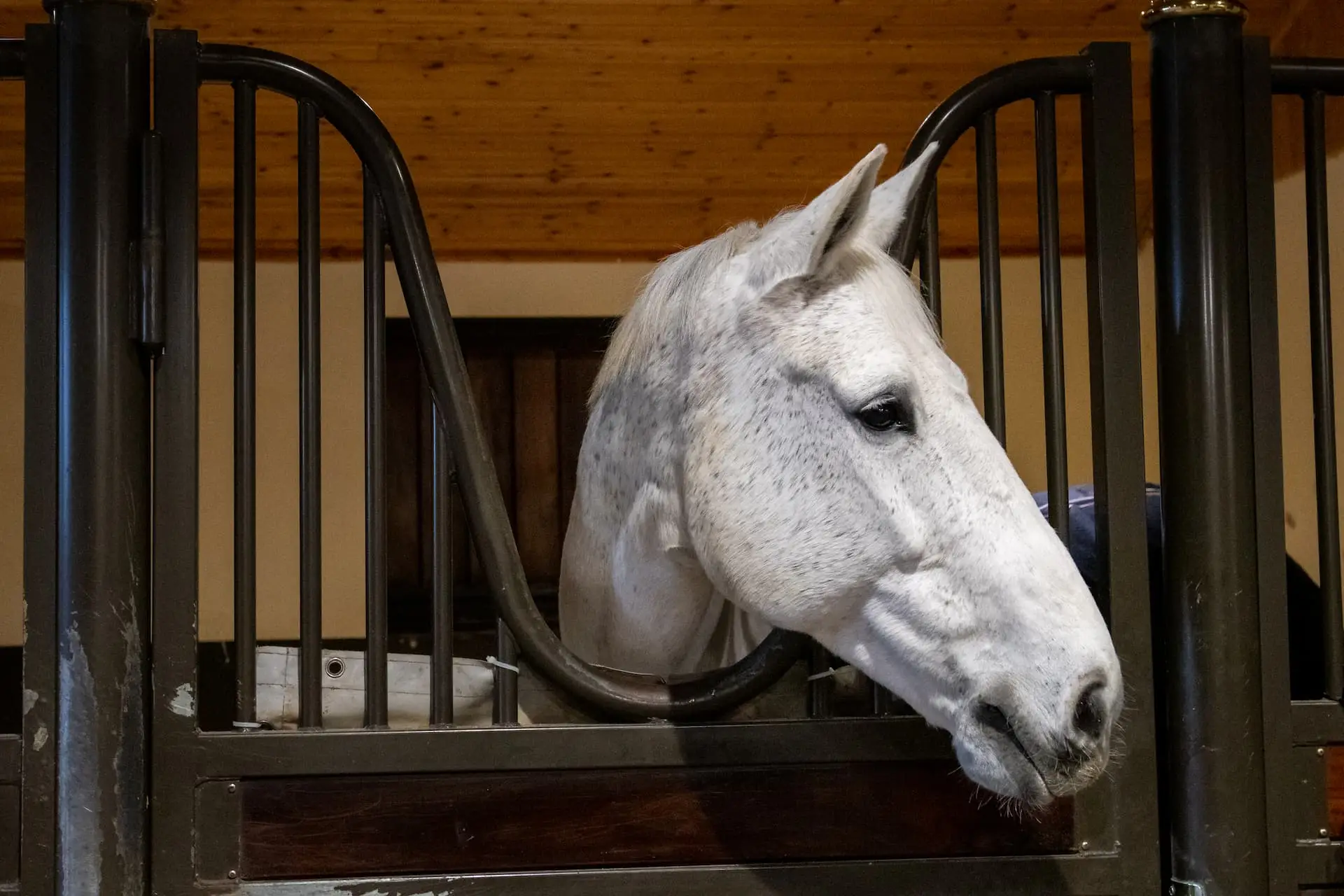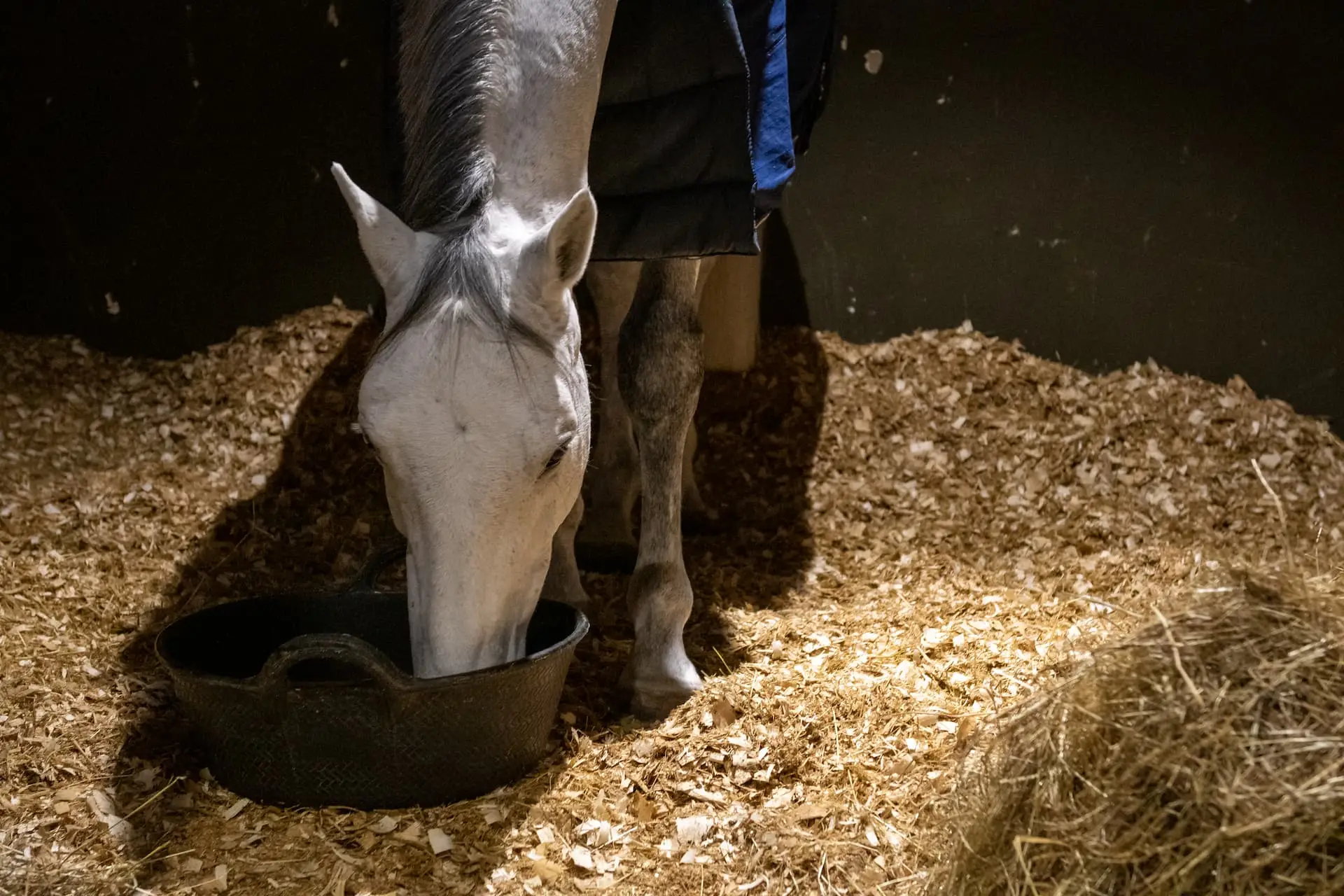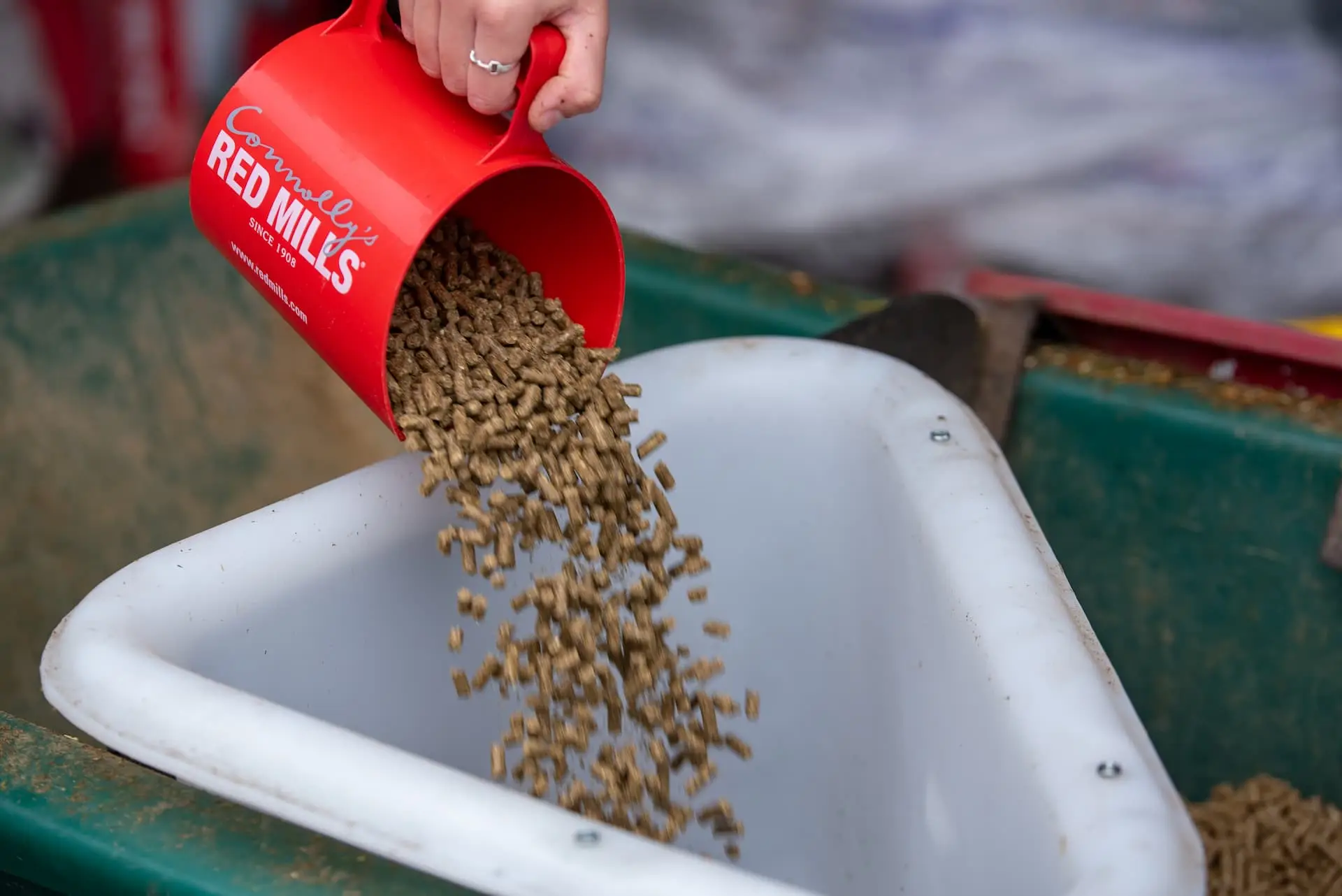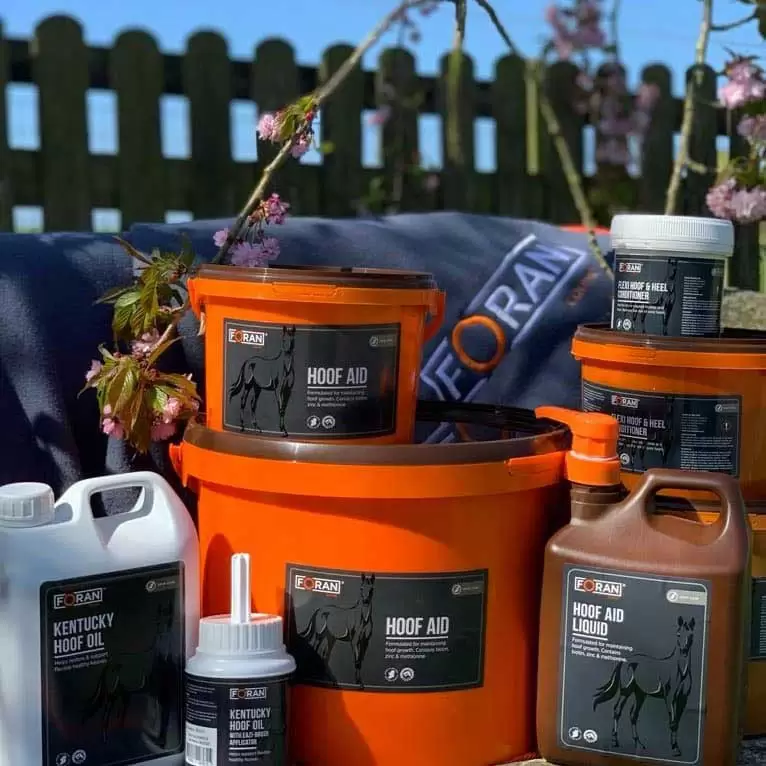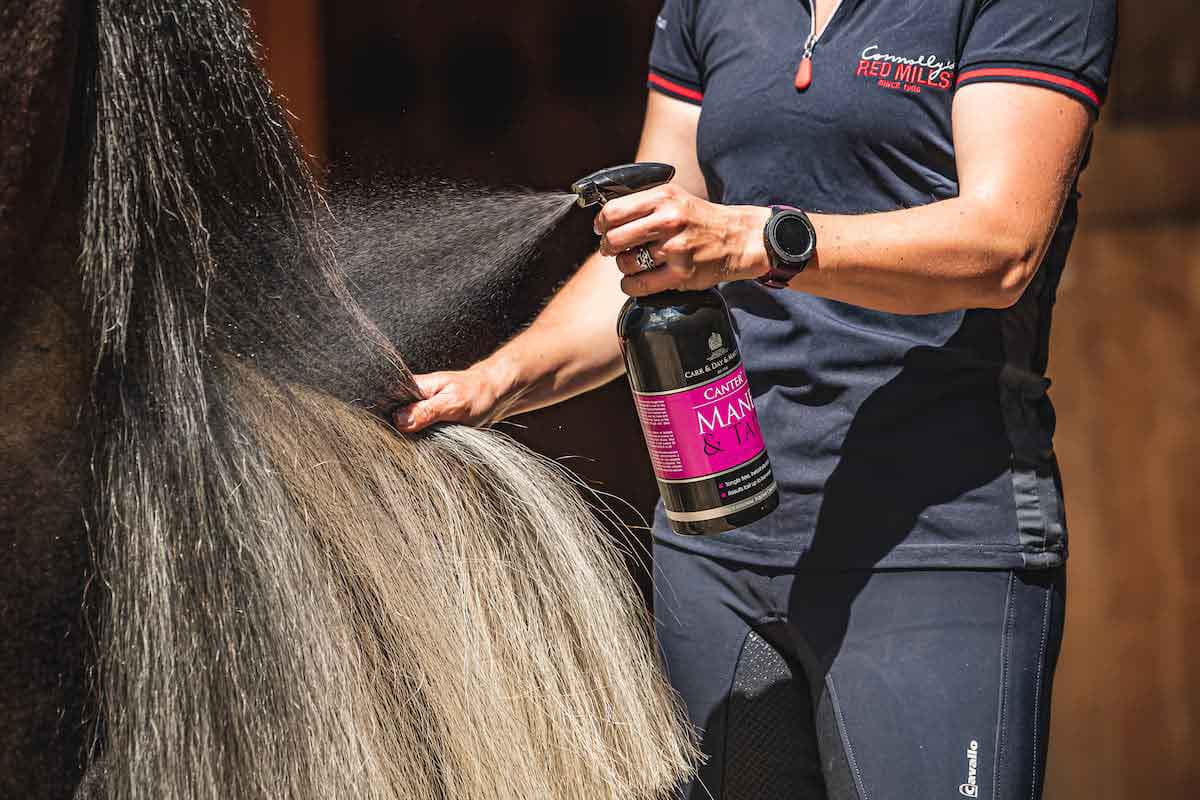How can the winter period help correct your horse's weight?
From gales and driving rain to hard frosts and even snow, winter is definitely here! Many of us automatically increase the amount of hard feed we give our horses and ponies, but is this always necessary?
Horses will naturally gain weight in the spring and summer due to the increased growth and quality of grazing. As a result many horses, particularly native types, can enter winter with significant fat reserves. During the colder winter months, they then use this excess fat as an energy store, which can be drawn upon to help them cope with the harsher weather and poorer quality grazing. This will mean that they naturally lose a little weight over the colder months, allowing them to safely regain some weight the following spring.
The horse’s metabolism is designed around this natural cycle of weight gain and weight loss. However, in a more managed environment horses are less likely to lose this weight, as often owners will increase their feed during the winter months. In turn, by the following spring the horse has not lost weight through the winter and then continues to gain weight with the spring grass, resulting in them being overweight and increasing the risk of problems such as laminitis.
There are many factors to consider when assessing to what extent a horse can withstand the change in season and how best to feed them during the colder months. So, what do you need to think about when deciding what hard feed you should give your horse in winter?
Assessing your horse’s weight and condition regularly during the winter is extremely important. You can do this by assessing their body condition score (BCS) regularly. If your horse is losing too much weight then you can look into changing the diet to suit your horse’s needs. On the other hand, if your horse is a “good-doer” winter can be the ideal time to allow their condition to drop off naturally, meaning that they can safely gain a little weight the following spring.
Find out how to monitor your horse’s body condition score here.
Winter brings short days, long nights and cold weather. Although some horses will remain in full work, or even have increased workloads, many of us find that we simply cannot exercise them as much or as frequently. As a result, their requirement for hard feed is unlikely to change or they may even need less. Remember too, that if your horse is stabled, they are likely to be burning fewer calories.
The amount of shelter your horse has from the elements will also affect the quantity of hard feed they need. Horses that live out should have at least some protection from hard weather conditions. This could be natural such as trees or a hedge line or if needed a 3-sided field shelter. Some horses will also need to be rugged, not only does this keep them warm but it also can help minimise the risk of rain scald and keep them, relatively, clean! However, not rugging or only using a light weight rug can help an overweight horse to lose weight naturally. Try not to overgroom un-rugged horses as this may strip the coat of the natural oils and reduce its waterproofing abilities.
Although winter grass is less nutritious compared to spring and summer grazing it can still provide enough calories for good-doers in light work so long as there is enough of it for the horse to eat. However, when grass is limited, as can often be the case when paddocks become poached and muddy during the winter, it will be necessary to provide an alternative source of forage, a late-cut low calorie hay is ideal for good doers. Unfortunately, grazing and hay alone will not provide balanced diet, so all horses will need some form of hard feed. It should also be noted that on sunny, but frosty, winter mornings the sugar content of grass can be high and therefore not suitable for horses prone to laminitis.
Regardless of your horse’s weight, it’s important that they continue to receive adequate forage during the winter. This will maintain digestive and mental health, minimising the risk of problems such as colic and oral stereotypes (i.e. crib-biting). Forage also acts as an internal hot water bottle, as heat is produced when fibre is fermented in your horse’s hindgut.
In some situations, ad lib hay may provide too many calories and as a result it may be necessary to either reduce the amount of calories it provides by choosing a late cut, less nutrient dense meadow hay or soaking the hay to reduce the calorie and sugar content, or both. If this is not effective, then forage intake may need to be restricted. However, this should not be to less than 1.5% of the horse’s bodyweight on a dry matter basis, as feeding less than this amount may lead to issues such as colic, gastric ulceration or oral stereotypes. If forage is restricted, it’s important to slow down intake, meaning that is lasts a little longer. One of the easiest ways to do this is divide the daily amount into a number of portions and feed these in double netted, small-holed hay nets, several times per day.
Forage alone will not provide your horse with optimal levels of all the essential vitamins and minerals they need to stay healthy, and these will need to be provided in the form or a hard feed or multivitamin and mineral supplement. However, when feeding for weight loss, the goal is for the horse to use more energy than calories consumed. Therefore, it’s important to carefully consider the type and amount of bucket feed you provide.
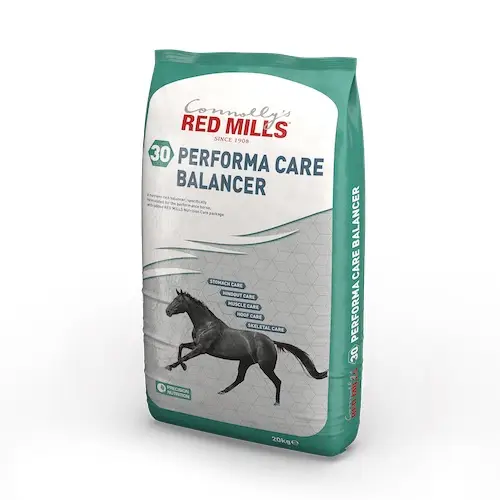
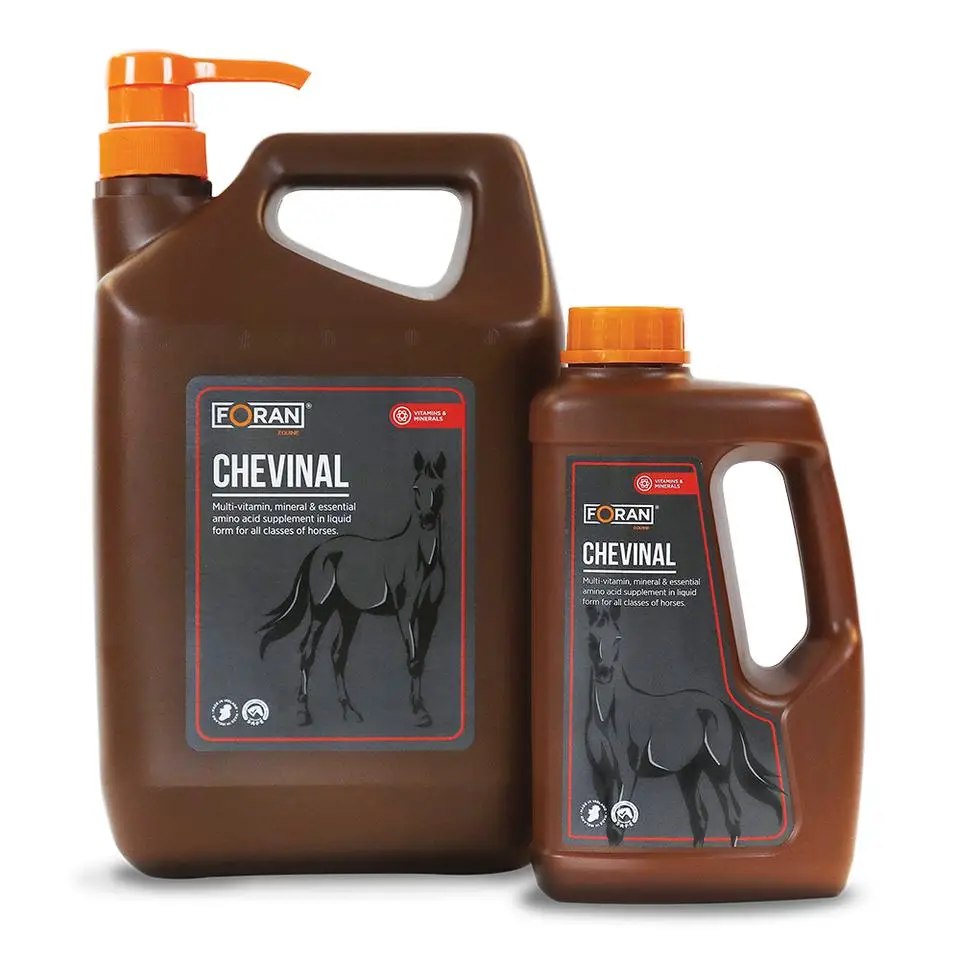
For many horses that need to lose weight, the best solution is to feed Connolly’s RED MILLS PerformaCare Balancer. This nutrient-rich balancer has been designed to be fed at low intake (i.e. 100g per 100kg of bodyweight) and contains limited calories, whilst still providing optimal levels of high-quality protein, essential minerals and vitamins and our unique Care package to support overall health. Alternatively, we recommend Foran Equine Chevinal. This highly palatable liquid vitamin, mineral and amino acid supplement can be mixed with a small handful of feed for a virtually calorie free, yet balanced ration. Read more about feeding the good-doer here.






